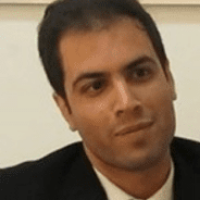Towards Reviewing and Developing the Applicability of University E-Learning in the Post-Corona: Introducing a Strategic Model
The education and learning of university in the world changed from face-to-face to e-learning under the pressure of the corona pandemic. This change in Iran improved the awareness and attitude of academics regarding the capacities of this educational method. However, it has been accompanied with numerous disorders and shortcomings in its application. In this study, the theoretical background of this problem formation has been explained and then has been presented a coherent model. That review and develop the applicability of e-learning in Iran's higher education for the post-Corona era. This model was created based on the grounded theory method with a qualitative analysis of the views and experiences of 18 selected participants. It is composed of related dimensions, including; quantitative and qualitative development of technical possibilities, optimal and agile training of human factors, individual and collective agency, research and knowledge management in universities. These are realized and improved around the core of the model. The model core is the dynamic and supportive macro structure. Hence, this model intends to synchronize universities and structures of higher education. In order to review and develop the e-learning in the post-corona. In addition, it offers policy insights for its actualization. The most important of these insights at the macro level; Decentralization on the management and planning of e-learning, ability to talk with universities to provide opportunities based on field, drawing supportive policies based on scientific evidence, and systematic and contextual monitoring of university performance. On the other hand, at the university level, insights such as; the action freedom of academic agents in the quantity and quality of using e-learning, demanding and intelligent intervention in the policies of institutional structures, optimal and fair learning opportunities for the development of e-learning literacy of human agents, active and critical participation of academic agents in university policies and programs, and the development of electronic systems focusing on the interaction of pedagogy and technology.
-
Stable balance between the supply and demand of higher education in the transition to post-mass : Providing a decision support model for university administrators in Iran
*, Maedeh Thaghizadeh Tabarci
Science and Technoligi Policy Letters, -
A framework for understanding the problem of the scientific community of faculty members in Iran's higher education
*, Mohammad Yemeni Dozi Sorkhabi, Abbaslat Khorasani, Ismail Jafari
Journal of Educational Planning Studies, -
Qualitative meta-analysis of futures studies in higher education: case study of futures studies desk in higher education
R. Maniee *, H. Kamali
Interdisciplinary Studies in the Humanities,



